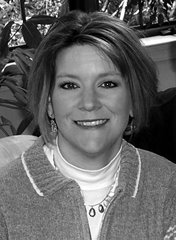Lehner: "Skate to where the puck is going"
Eddie Lehner, executive VP and CFO of SeverCorr, showed nearly 200 area executives just what it takes to get a brand new steel company off the ground -- smart planning, supportive communities, and, most important, persistence.
Lehner spoke March 14 to a joint luncheon for the Association for Corporate Growth and Greater Cincinnati Venture Association. A friend and former client of Barr Corporate Success, Lehner spoke compellingly of how he and other steel executives planned and financed the $900M start-up steel mini-mill in rural Mississippi from scratch.
"You're building what?" Lehner was asked
when he initially pitched the project. Some dismissed it as crazy. The steel industry is consolidating and fighting for market share with overseas competitors, but Lehner felt SeverCorr was at "the intersection of opportunity and chance."
He anticipated the deal would take 3 months to put together. It took 21 months. "It's humbling, and perseverance is 99 percent of everything. You have to put in
the time, pay the price, keep going 'til you get to 'yes,'" Lehner said.
Why steel, why now, and why in the U.S.? "Consolidation of the industry has left room for entrepreneurs to slip in
underneath," Lehner said.
These entrepreneurs began their "crazy" mission with extensive combined knowledge and a sincere commitment to revitalizing steel in the U.S. They identified obstacles working against existing steel companies, and the largest was transportation costs. The answer: location, location, location.
"Transportation logistics is at a crossroads," Lehner said,
citing the saturation of insterstate highways. If SeverCorr could avoid long haul trucking, using water, rail, and short-haul trucks, savings would be substantial.
The team knew any new steel venture would need to be located near the growing automotive manufacturing market in the Southeast. Auto plants for Kia, GM, Nissan, Honda, Mercedes-Benz, and Hyundai are clustering around the Mississippi River in Alabama, Louisiana, Tennessee, and Arkansas, seeking deep water for access from Brazil and Venezuela. Lehner followed the example of Wayne Gretsky. "I skate to where the puck is going, not where it is."
Efficiency throughout the supply chain is key. SeverCorr benefits from new technology and equipment, with no legacy and maintenance costs from older equipment. The team developed trust with its suppliers; they negotiated consignment deals for raw materials which compact the cash conversion cycle so that the company need not pay for the pig iron until it hits the smelter. SeverCorr is the first domestic steel mill able to roll 72-inch hood stampings for automobiles, capitalizing on a local market not being met.
Other factors smoothed the way for SeverCorr. Lehner cited Mississippi Governor Hayley Barbour as "a motivated governor" committed to economic development and willing to offer incentives. The Tennessee Valley Authority was able and willing to provide the vast power required for the mill. SeverCorr took full advantage of Mega-Site certification -- a McCallum Sweeney program that acquires tracts, performs Phase I and Phase II due diligence, and has the sites ready for development. The company bought a 1400 acre "golden triangle" bounded by the airport, river, and rail, breaking ground in October, 2005. The community welcomed the plant, and more than 9,000 applied for the 400
initial jobs. Recent announcement of a Toyota plant to be built 70 miles from
SeverCorr is yet another boon.
SeverCorr's talent management is also an update to traditional models. Lehner said the company has a covenant with its workforce, an egalitarian philosophy stressing "commitment, knowing what we're doing, and why we're there. "
With construction expected to finish this October, SeverCorr is positioned to revitalize the domestic steel industry, and spark development throughout communities in the rural south. The day it opens, the mill will be the largest solid waste recycler in the state of Mississippi.
Despite years of effort, months spent in hotels, and more than 900 pitches to financiers, Lehner speaks enthusiastically of the journey. "It's not often you get to advance your field like that," Lehner said.
Return to Barr Corporate Success
http://www.barrcorporatesuccess.com


